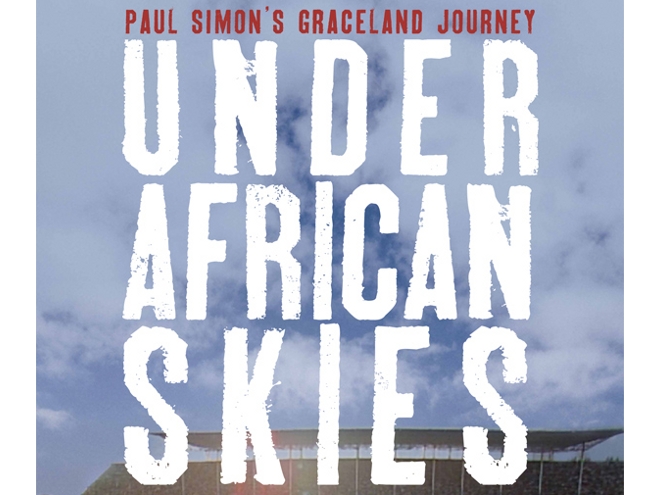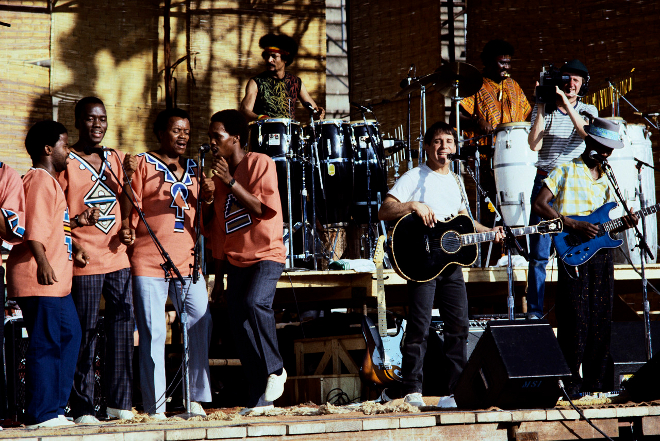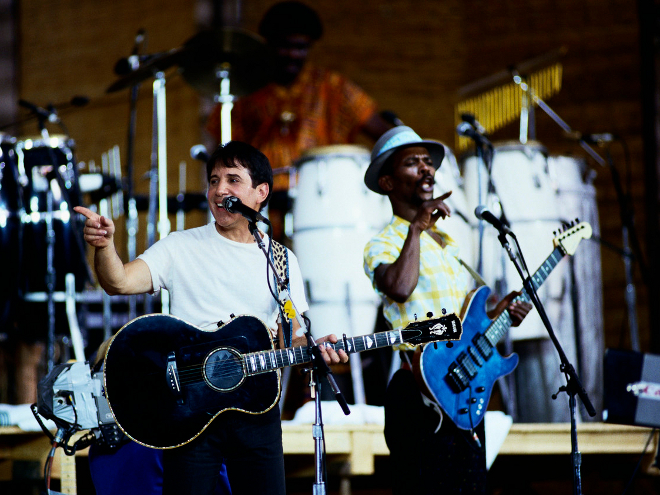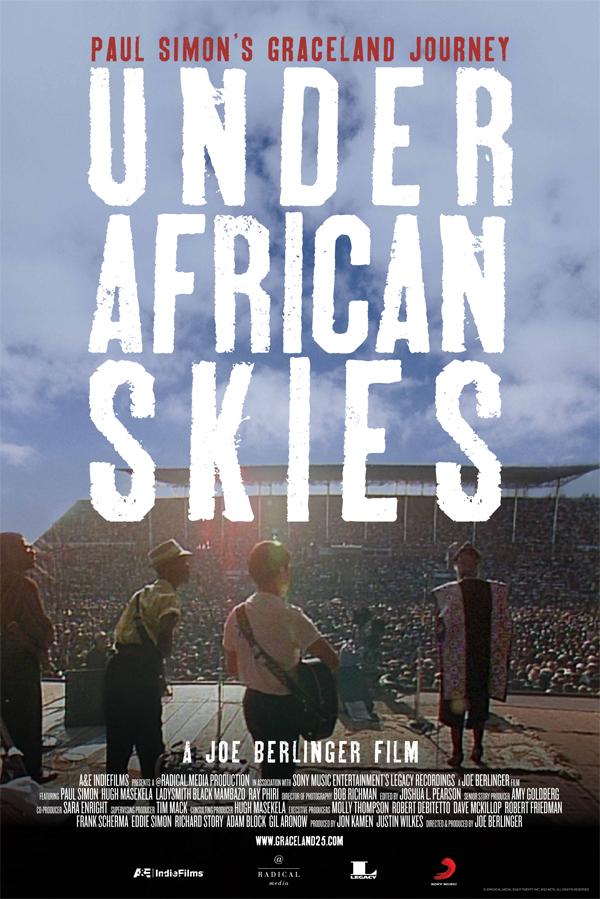Review: Under African Skies – Paul Simon's Graceland Journey
New documentary on landmark album

Want all the hottest music and gear news, reviews, deals, features and more, direct to your inbox? Sign up here.
You are now subscribed
Your newsletter sign-up was successful
The biggest album of Paul Simon's solo career is also his most controversial. More than a quarter of a century after its release, Graceland has notched up worldwide sales of over 15 million - a figure likely to be boosted considerably when an expanded anniversary edition comes out in June.
However, Simon's decision to record parts of the album in South Africa, using South African musicians at the height of apartheid in 1986, made headlines far beyond the music press of the time, prompting accusations of him flouting the United Nations' cultural boycott. There were also protests and picket lines outside venues on the subsequent tour, including gigs in London and Birmingham.
The story of the album's making, its reception and its success (it spawned such classics as You Can Call Me Al, The Boy In The Bubble and Diamonds On The Souls Of Her Shoes) is unflinchingly told in a new film, Under African Skies. Directed by Joe Berlinger, who also helmed the acclaimed 2004 Metallica documentary Some Kind Of Monster, it's far from a public relations whitewash, and shows Simon being confronted face-to-face by his sternest critics for the first time.
Simon first had the idea for Graceland as early as 1984, when he was given a cassette of songs by The Boyoyo Boys, a South African group who played a style of township jive known in illicit Soweto drinking dens as mbaqanga. Inspired by melodies and rhythms that had previously been alien to him, Simon took the fateful decision to travel to South Africa to seek out musicians for his own recordings.
After spending nine days in Johannesburg and its surrounding townships, the core of Graceland came together, but while Simon claims he had the blessing of the local musicians' union, the South African Musicians Alliance, he failed to consult with the UN, the African National Congress political party outlawed by the country's ruling apartheid regime, or other anti-apartheid pressure groups.

Paul Simon performs with his band on the Graceland tour in 1987. © Penny Tweedie/Corbis
It was seen by some as arrogance on Simon's part, as singer and activist Harry Belafonte explains in the film: "Paul resisted the idea to consult with the ANC. To beg the rite of passage was against his instinct."
Want all the hottest music and gear news, reviews, deals, features and more, direct to your inbox? Sign up here.
Simon had previously turned down several invitations to play before segregated audiences in Sun City, in the South African homeland of Bophuthatswana, which made his decision to record in the country all the more baffling to some. Was he attempting to exploit loopholes in the cultural boycott, or was he just being naive?
The Paul Simon who appears on screen in Under African Skies is both defensive and regretful of the storm his album brought, stressing that there was no political motivation behind making the record, or the songs it contained. "I'm not very good at writing political songs," he says. "Instead of writing a Biko [Peter Gabriel's protest inspired by the death of activist Steve Biko], my idea wasn't to make anything other than a great pop record."
Gabriel himself appears in the film, suggesting Simon's music carried a wider message: "Graceland helped people around the world realise there was more to South Africa than suffering."

Paul Simon onstage with guitarist Ray Phiri. © Penny Tweedie/Corbis
The most charged scenes in Under African Skies see Simon sitting down in 2011 with Dali Tambo, the son of late ANC figurehead Oliver Tambo who was living in exile in London at the time of the album's release (when, lest we forget, Nelson Mandela was still in prison). The singer admits he could have handled matters differently, and reiterates that it was never his intention to exploit local musicians or cause offence.
Beyond the political controversy, Berlinger's film also celebrates the music of Graceland, his cameras shadowing Simon on his return to South Africa last year for fresh rehearsals with the musicians he first met back in the 1980s, including the vocal group Ladysmith Black Mambazo and township jive guitarist Ray Phiri, who he acknowledges as the chief architect of the Graceland sound.
"The album is still extremely important from a musicological and cultural perspective," the director says. "The way that Paul took these backing tracks and then laid his own approach over it was something entirely new. People forget what a breakthrough it was."
Under African Skies is showing at the Sundance London Film & Music Festival, 26-29 April. See www.sundance-london.com for full details. It will also be available as part of the deluxe edition of Graceland, out 4 June.
Paul Simon reunites with Graceland musicians for a concert in Hyde Park, London, on 15 July.
